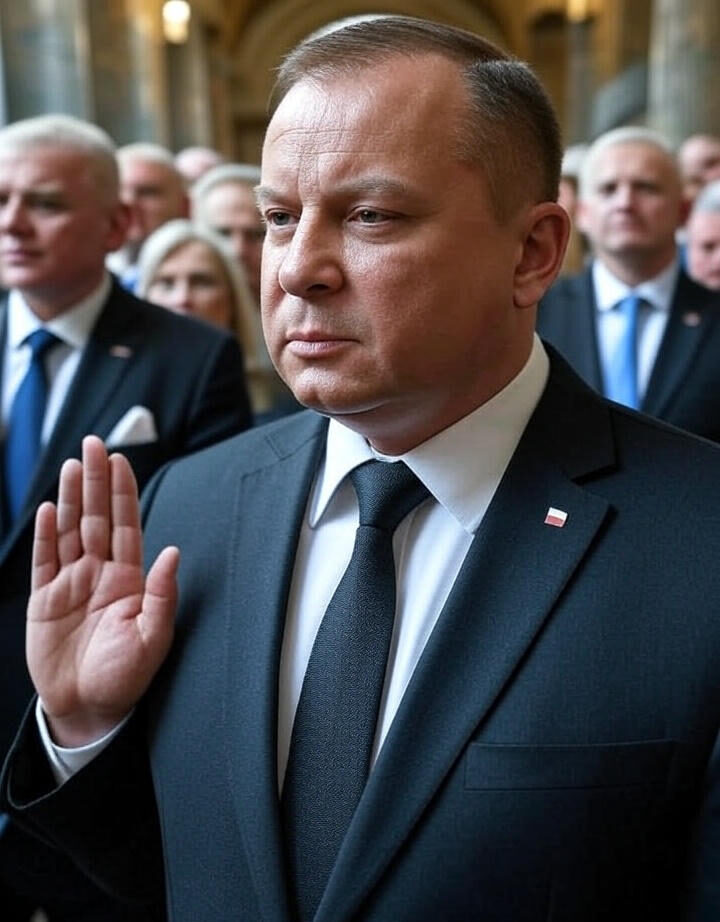Introduction
On 6 August 2025, Karol Nawrocki backed by the nationalist Law and Justice (PiS) party was inaugurated as Poland’s president, dealing a significant blow to the pro EU government led by Prime Minister Donald Tusk (Reuters).
Election and Political Background
Elected during a tight runoff on 1 June, Karol Nawrocki secured approximately 50.9% of the vote against Liberal Warsaw mayor Rafał Trzaskowski, signaling a shift from Tusk’s centrist, pro European trajectory (Wikipedia).
A political novice, Nawrocki had previously led the Institute of National Remembrance and the Gdańsk WWII Museum; he joined the political fray after being approached by PiS in late 2024(Globedge).
Inauguration and Political Messaging
Nawrocki took office amid enthusiastic chants in parliament. In his inaugural speech, he condemned election “lies” but extended forgiveness in Christian spirit (CBS News).
He pledged to defend Polish sovereignty within the European Union, vowing never to let Brussels strip Polish powers not defined in EU treaties (DW). He also called for constitutional reform, targeting completion by 2030 to limit EU influence and reinforce national governance (Omni, DW, South China Morning Post).
Policy Priorities and Ideology
- Sovereignty and EU scepticism: Karol Nawrocki supports membership in the EU but rejects deeper integration, euro adoption, or surrendering policymaking authority to Brussels (The Washington Post).
- Migration and social conservatism: He opposes illegal immigration, supports maintaining the złoty instead of the euro, and champions traditional Catholic values over liberal reforms of abortion and LGBTQ rights (South China Morning Post, Wikipedia).
- Defense and foreign alignment: Nawrocki pledges to expand Poland’s military strength and strengthen its NATO role on the Eastern flank, while signalling preference for strategic ties with the U.S. over EU defense mechanisms (AP News).
Clash With Tusk Government
Although Poland’s prime minister holds most executive power, the president can veto legislation, propose bills, and influence foreign policy. Analysts warn of a looming two year deadlock, reminiscent of the tense dynamics under former PiS president Andrzej Duda (Reuters).
Tusk’s government, committed to judicial reform and tighter EU relations, lacks a legislative majority to override a presidential veto a weakness Nawrocki is expected to exploit (Reuters).
During the inauguration, Tusk stayed silent as Nawrocki spoke. Deputy PM Krzysztof Gawkowski of The Left issued an early warning: “There will be no cooperation here” (Reuters).
Controversies and Criticisms
Observers flagged multiple controversies surrounding Nawrocki most notably:
- Alleged ties to criminal figures, dating from his time as a boxer or hotel security guard.
- A scandal involving a disputed property transaction with an elderly man, later resolved by Nawrocki donating the apartment to charity (AP News).
Although Nawrocki portrays himself as a moral nationalist, critics question his transparency and fitness for high office.

Domestic and International Implications
His presidency marks a turning point for Poland’s political trajectory:
- Domestically, it sets up sustained constitutional friction between nationalist presidential authority and a centrist government.
- Regionally, it aligns Poland with other EU‑skeptical leaders like Viktor Orbán, Robert Fico, and Giorgia Meloni while complicating relations with Ukraine and Brussels (AP News, The Washington Post, Reuters, cadenaser.com).
Outlook Toward 2027 and Beyond
With parliamentary elections scheduled for 2027, PiS hopes Nawrocki’s presidency energizes its base and helps reclaim power. Tusk’s coalition, lacking override power and facing institutional gridlock, must act swiftly to implement judicial and societal reforms before Nawrocki wields his veto (Reuters).
This inauguration deepens Poland’s ideological divide between nationalism and European integration, conservative tradition and liberal reform hinting at a volatile political landscape ahead.
Summary
Karol Nawrocki’s inauguration on 6 August 2025 as Poland’s new president marks a substantial setback for Prime Minister Donald Tusk. Backed by PiS and U.S. conservatives, Nawrocki’s nationalist platform prioritizes sovereignty, constitutional change, and social conservatism. His veto power sets the stage for potential legislative gridlock, intensifying Poland’s internal factionalism and reshaping its international alignments.

